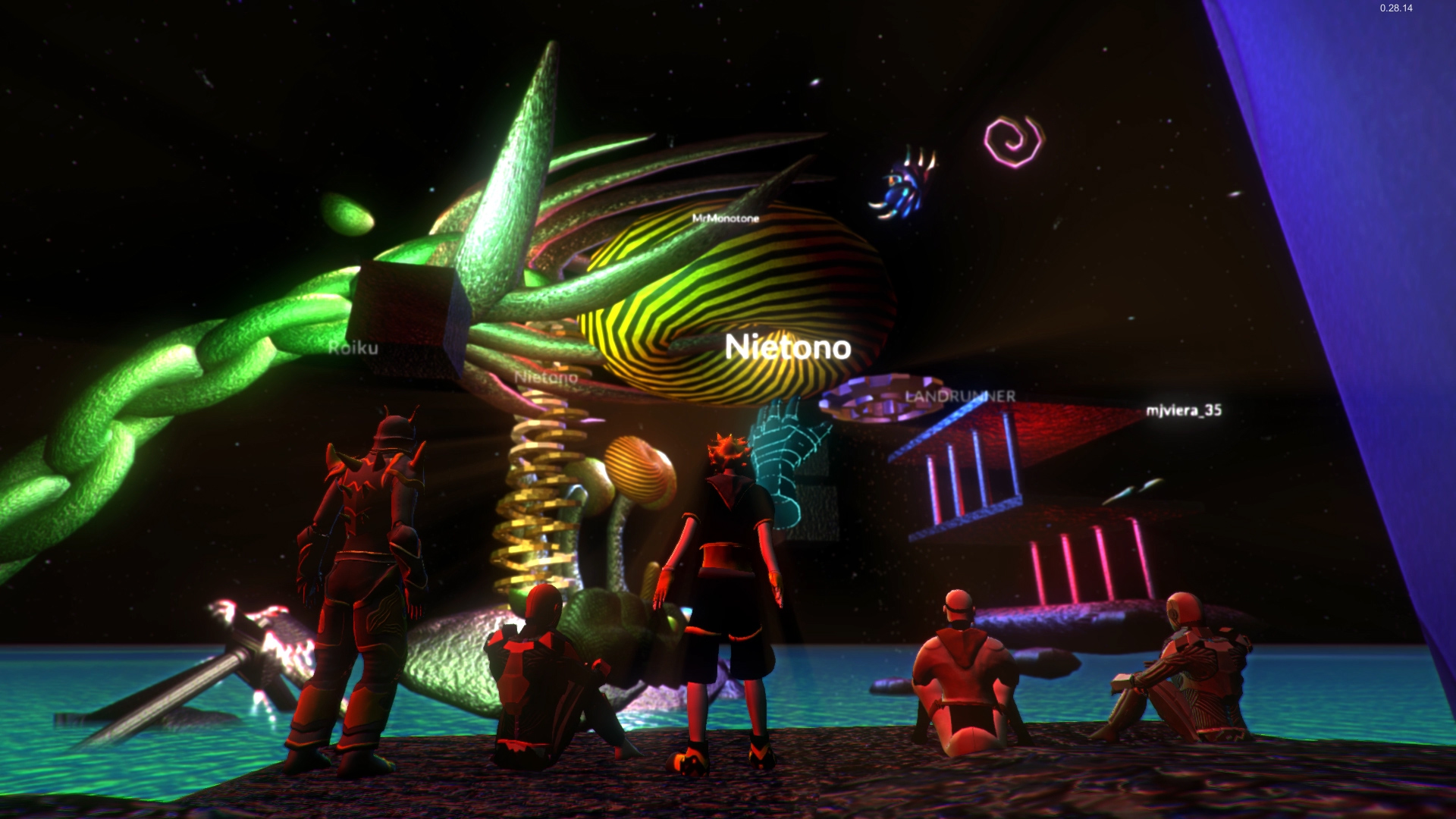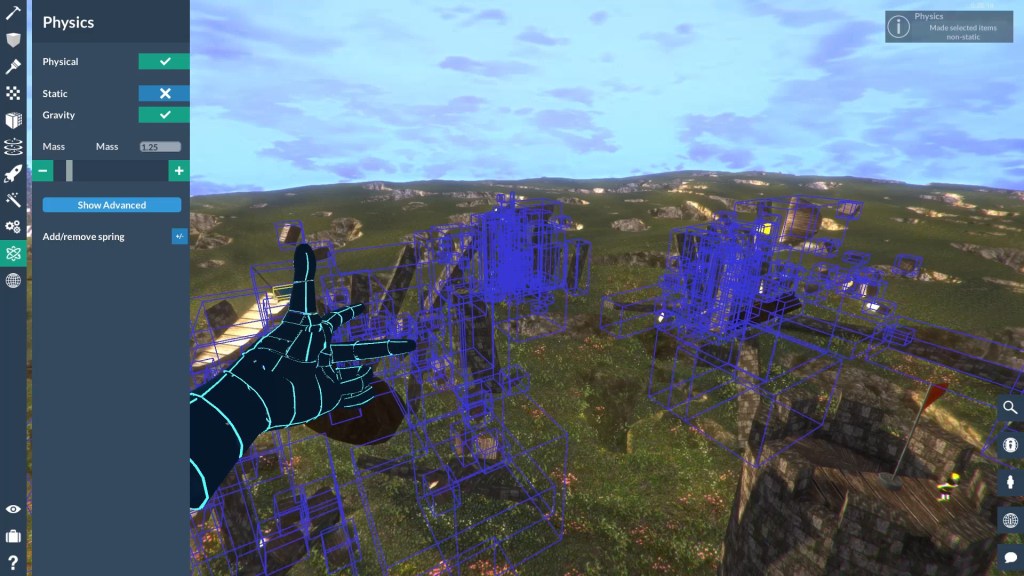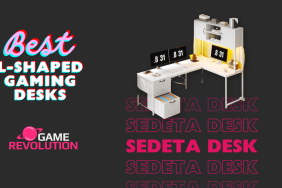Make Any Game.
If you were to ask me what one of the most mind-blowing things I saw this year as a member of the gaming press, I would probably tell you it was the Epic press conference at GDC. Epic unveiled their $19 subscription model for Unreal Engine 4, which highlighted a scalable graphic user interface for game building, which could be combined with anode tree system for interactions, to build games in the engine without ever having to get into the code itself, giving creators unparalleled access to game tools.
However, with UE4, you still have to build your own assets (in complex programs like Maya or 3D Studio Max) and do all the prep work (animation rigging, etc.) to make your game. It's still a more technical process than even the most complex world/level building games. UemeU, the palindrome-named sandbox game from Omnigon Games, sits comfortably between the now cheaply distributed game engines like UE4, or CryEngine and sandbox creation games, by giving the player/creator easy menu-based choices, simple controls for item creation and manipulation, and the ability to jump in and play in those worlds quickly.
UemeU's Build mode features a giant hand that becomes the avatar for the act of creating. Depending on whether you are placing objects, rotating them, or changing their shape, the hand's orientation changes. UemeU has a surprisingly intuitive approach to object placement, where the size of an object is based on how much you're zoomed in or out from the environment.
UemeU distinguishes itself from other sandbox games, like Minecraft, Dinsey Infinity, Landmark, and other level builders like LittleBigPlanet and Mario Maker, by not being tied to a specific game or franchise. This removes a lot of the limitations in the kind of game or environment you want to build. Disney Infinity is highly versatile, for instance, but its core gameplay and design still relies on unlocking mechanics from the single-player game; all of these games are tied to either an existing game mechanic or having to unlock materials or abilities for building through other types of play. UemeU is built around the idea of building without those restrictions.
Another way that UemeU distinguishes itself is that multiplayer is not restricted just to the levels or environments that the player builds. It's also possible to have other players engage in mutliplayer within Build mode. In practice, this was shown to me with a giant chessboard where two build hands played a game of chess. However, it's much bigger than that; the original level creator can invite a friend in to help collaborate on building a level or game together.
While you can currently support UemeU by purchasing it outright for £10.99 (a little less than $19 American), Omnigon CEO Jeremy Hindle told me that he saw the future of the game's monetization coming from third-party transactions. For instance, a company like Nintendo might make their Smash Bros Master Hand available as a skin for the build hand for a nominal fee, etc. Similarly, skins or licensed items for the avatars could also be purchases.

Everything you can create in the game can be modified using the game's menus to change textures, physics, and other properties. Characters for the Play mode have up to four ability slots. However, the abilities within these lots can be linked to other abilities, creating chains of things you can do or use. Abilities and other environmental effects (like teleportation) can be linked to objects to create gates; and the game's scripting language, Hindle told me, was similar to early Flash.
UemeU is the singlemost accessible and comprehensive sandbox creation game I've yet seen. Hindle told me the game, which is currently available by downloading a client from the www.uemeu.com website, for Mac and PC (with plans to expand to soon Linux) has a rigorous update schedule where the devs are dedicated to giving the players in the alpha what they want. If a player asks for something, they try to get it to them as soon as possible, and that they have a dialogue with the players that's very transparent, with direct discussions with the staff. UemeU is pushing the boundaries of how to help players make the games they want, with a highly intuitive toolset. It's not like anyone can build their own triple-A game all in one app, yet; but it's moving one step closer.











